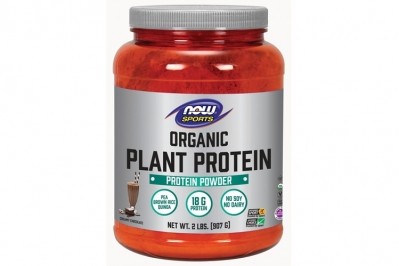Pro sports dietitians find role for NSF’s redesigned mobile app for certified supplements

Dietitians working with the Detroit Red Wings of the National Hockey League (NHL) and the Kansas City Chiefs of the National Football League (NFL) spoke with NutraIngredients-USA about the new app.
Using the app, athletes and general consumers can verify which products are true NSF Certified for Sport supplements.
The sports certification is mandated by the NHL and recommended by the NFL for the supplements given to athletes. Through the certification NSF verifies by lot that a given supplement is free of more than 270 banned substances, thus eliminating the worry of an athlete failing a doping control because of a sloppily manufactured or intentionally adulterated product.
Food falls short
Proper nutrition and targeted supplementation is of critical importance in the NFL because of the increasing kinetic energy in the game. Players are bigger and faster than they were 20 or 30 years ago. While their musculature has increased, the supporting skeletal, tendon and ligament structure, generally limited by genetic factors, hasn’t kept pace.
As a flagship example, Houston Texans defensive lineman J.J. Watt, voted the league’s best defensive player in three separate seasons, stands 6’5” and weighs in at 290 lbs and is all muscle, lacking the sumo like belly of some of his linemen cohorts. Watt is renowned for his speed and acceleration off the ball. Earlier this season he snapped his tibia in half when taking a false step on the turf.
Bonci said these risks are well understood, and players are trying to be proactive. Only rarely would an athlete choose to play at a lighter weight; rather they seek to compensate with more precise training plans and better nutrition.
“We are talking about bodies that are a lot bigger than they used to be. But the supporting structure hasn’t changed. The size of ligaments and tendons hasn’t changed. It really does put the players at risk. Today you have athletes who are better at taking care of their bodies and are being more proactive,” Bonci said.
McDowell agreed that supplements have come to play a key role in helping players reach their goals. And they can have a special role for hockey players by extending their careers. While only a tiny minority of NFL players outside of the quarterback position can play past their early to mid-30s, many NHL careers now routinely extend into a player’s late 30s or even past age 40.
“I see where supplements have a role to play in maximizing potential. Take the example of ferratin levels [a measure of an iron-containing protein in the blood]. A normal range we see in lab results might be anywhere from 13 to more than 350. If someone comes in with a lab level of 13, we know that their oxygen carrying capacity will not be at an optimal level,” she said.
“Or look at vitamin C. We know that 60 mg of Vitamin C is the bare minimum to prevent scurvy, but we also know that when we combine higher levels of Vitamin C with collagen we can help with tissue repair and help prevent soft tissue injury,” McDowell said.
Cutting through the clutter
With all of those upsides, there’s a downside, too. Athletes are not always under team supervision, and sometimes might be receiving dubious advice about which products can benefit them the most. This is when the app, which NSF said has been improved to provide more powerful search functions such as a barcode scanner, can be useful.
“I am not with them 24 hours a day. They are being bombarded with advice from a lot of people who are not in the know. Having the app can make it so much easier and cut through all the clutter,” Bonci said.
“We know from our in-depth testing of our athletes, looking at their lab levels, that it is difficult for a lot of them to keep up with their micronutrients such as folate and Vitamin A.
“And then there’s getting in a recovery dose of protein in the 10 minute window post game or post workout. Having that NSF Certified for Sport logo on a recovery protein means we know that our athletes are protected from shady companies that have no evidence for their products and might be selling something that’s contaminated,” McDowell said.
"We've listened to athletes, coaches, trainers and users of sports nutrition supplements and implemented changes to NSF's Certified for Sport app to offer a more intuitive experience," said Lori Bestervelt, executive VP and chief technical officer at NSF International. "With enhanced search and display features, users can make smart and effective decisions about which supplements best fit their needs."
















